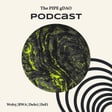
Discover tariff proof investment strategies with PIPE’s private equity model that shields your capital from global trade chaos.
Dive into the latest episode of the PIPE gDAO Podcast for impact finance, recorded at 10:03 AM BST on Sunday, April 13, 2025 Episode 19 of our podcast series, Tariffs Can’t Touch This: The Hidden Power of Private Equity in DeSci, where we unveil tariff proof investment strategies that shield your capital from global trade turmoil. Explore private equity fundamentals and discover how PIPE private equity tokenization blends the stability of private equity DeSci investing with the innovation of DeSci investing. Learn why biotech investing tariff immunity matters and how PIPE leverages investing in DeSci with USDC to offer liquidity and resilience, unlike volatile markets or stagnant assets like gold. With over 500% CAGR potential and tariff impact immunity, PIPE’s model redefines biotech investing by tapping into university R&D and government tailwinds. Join us for a fun, accessible breakdown of tokenization and why PIPE’s approach keeps your portfolio steady in any storm—because tariffs? They can’t touch this. Available on Spotify, Apple Podcasts, and X—tune in to unlock the future of tariff proof investment strategies today!
@ThePIPEgDAO | Instagram, Facebook | Linktree
This podcast is for informational and educational purposes only and does not constitute financial, legal, or investment advice. Views expressed are those of the hosts and guests and may not reflect those of the PIPE gDAO or its affiliates.
Investing in blockchain, DAOs, and tokenized university research involves significant risk. Do your own research and consult qualified professionals before making investment decisions.
PIPE gDAO makes no guarantees about the accuracy or completeness of information presented and is not liable for any losses arising from its use. This is not an offer or solicitation to buy or sell any financial product.
Hosts and guests may have financial interests in the projects discussed.


